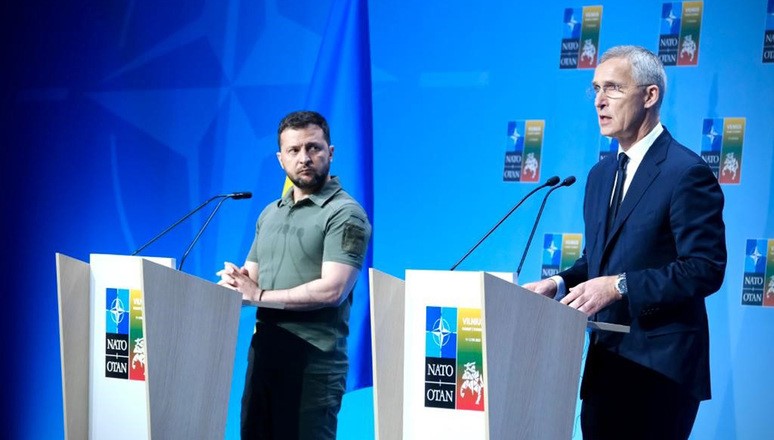NATO has concluded its most important summit in decades, and the implications for the future of both the organization itself as well as for the world in general are of exceptional significance.
Secretary General Jens Stoltenberg noted that “We have just concluded an historic NATO Summit. Over the past two days, we took major decisions to adapt our Alliance for the future. We agreed NATO’s most detailed and robust defence plans since the Cold War. We strengthened our commitment to defence investment. We agreed to bring Ukraine closer to the Alliance, and step up support for the long haul. And we deepened our partnerships around the world even more. I have just chaired the inaugural meeting of the NATO-Ukraine Council. From now on, NATO and Ukraine will meet in the Council to discuss and decide as equals. This is a significant step to move Ukraine closer to NATO.”
Earlier this year, Finland became the 31st member of the alliance. At the meetings just held in Vilnius, Lithuania, it was announced that Sweden would be admitted as well, probably by October. This adds an enormous new geographical advantage, both because of the proximity of the two nations to the Russian border, as well as giving NATO a more advantageous position in the Arctic, which Moscow has been militarizing, placing the U.S. and its allies at a severe disadvantage. Both Finland and Sweden had maintained a neutral stance since the end of the Second World War, but reacted with deep concern over Putin’s expansionist plans and actions. It became apparent to both that the former KGB official sought to both rebuild the Soviet Union and to resume that Empire’s threats to all bordering nations.
The Nordic nation’s bid had been delayed by Turkiye’s demands that Stockholm first take steps to address what Ankara maintained was a tolerance for a group President Erdogan considered to be prone to terrorism. In return, his request for American F-16 fighter jets was approved by Washington.
The organization, which will officially grow to 32 nations once Sweden’s admission becomes official, reaffirmed its commitment to assisting Ukraine, ending Putin’s hope that the west would eventually tire of the ongoing war. Ukraine’s President Zelensky had hoped to gain a specific timetable for his nation to also join, but it was decided that the war must first be won before that could occur.
Equally as important as the admission of Sweden and Finland and the growing assistance to Ukraine was the attention turned to broader threats to the free world. In addition to the North American and European nations, leaders from Australia, Japan, New Zealand, and South Korea attended. Stoltenberg stated that “NATO is a regional Alliance, but we face global challenges. What happens in Europe matters to the Indo-Pacific, and what happens in the Indo-Pacific matters to North America and Europe. Beijing’s global assertiveness and Moscow’s war against Ukraine require even closer coordination between NATO, the EU and our Indo-Pacific partners. We condemn North Korea’s nuclear and missile programmes, including its latest missile launch: These violate multiple UN Security Council Resolutions and pose a threat to regional and global security. NATO is reinforcing our ties with Australia, Japan, New Zealand and South Korea with tailored partnership programs, including joint work on issues like maritime security, new technologies, cyber, climate change, and resilience. We will work even more closely together, standing strong for the rules-based international order.”
The growing and already intense military, political and economic relationship between China and Russia makes the concern over Beijing’s vast nuclear and naval strength a major worry for the alliance. Moscow and Beijing have already engaged in joint military maneuvers in the Mediterranean, directly threatening NATO members.
Photo: NATO Sec. Gen. Jens Stoltenberg and Ukrainian President Zelensky (NATO)
